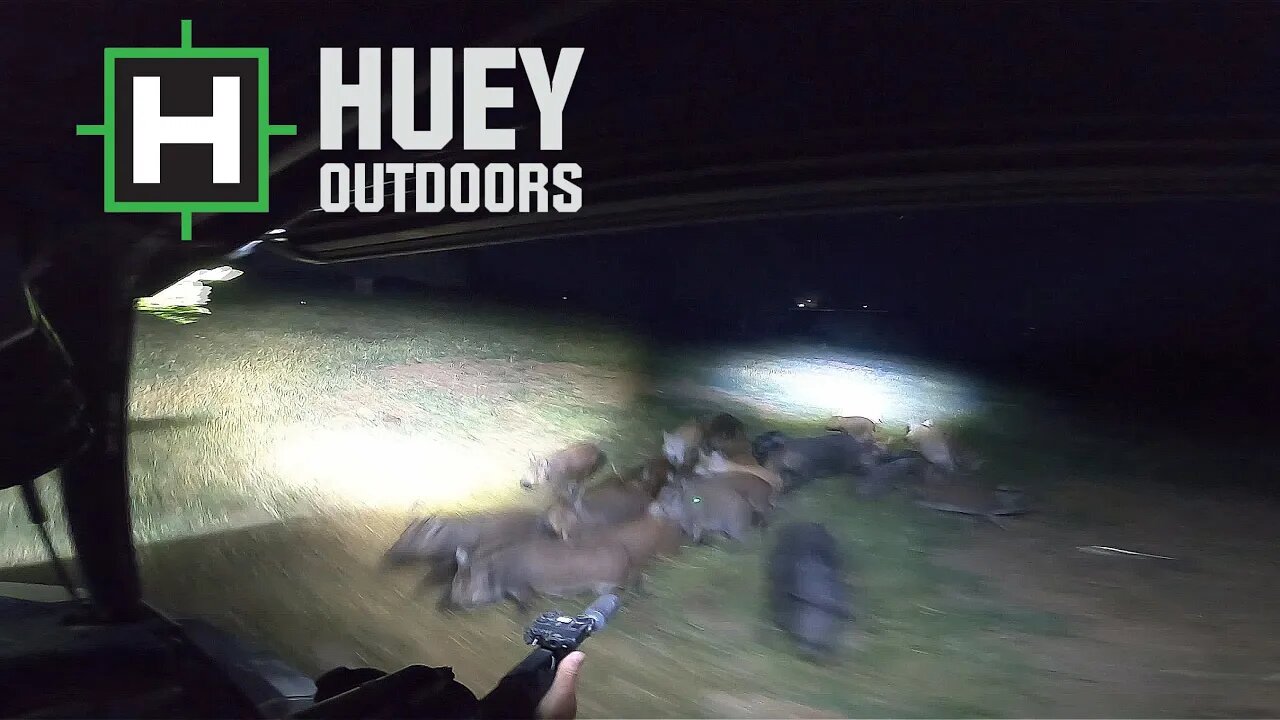Premium Only Content

200 PLUS HOGS DOWN WITH POLARIS GENERAL
Feral hogs are a invasive species in Texas. Hogs cause millions of dollars in damage in the form of damaged crops, contaminated water supplies, broken equipment, transmission of diseases and injury to livestock.
Feral swine compete with native wildlife for multiple resources, specifically food, habitat, and water. Feral swine diets overlap with those of native wildlife, such as bear, deer, and turkey, which results in competition for important and limited natural food supplies. Feral swine activity will often deter other species from living in an area, resulting in competition over prime habitat. Feral swine wallow in mud to maintain proper body temperature which can be particularly problematic during dry seasons when they monopolize and contaminate limited water sources.
Feral swine also prey directly on the nests, eggs, and young of native ground nesting birds and reptiles, including threatened or endangered species. Game birds such as wild turkeys, grouse, and quail can also be impacted. Feral swine have even been documented killing and eating deer fawns, and actively hunting small mammals, frogs, lizards, and snakes.
Feral hogs wallows are prime mosquito habitat which contributes to the prevalence of various mosquito-borne diseases. Wallows can also be a place of transmission for bacteria and parasites from feral hogs to native wildlife that come to drink.
Due to their intelligence, adaptability, and prolific breeding habits, traditional methods of hunting and trapping have been largely ineffective in reducing the feral hog population. The introduction of night vision and thermal optics has greatly increased landowners' ability to mitigate the destruction caused by feral hogs.
Feral swine are not considered game animals in Texas and may be hunted by any means or methods at any time of year.
-
 10:02
10:02
MichaelBisping
16 hours agoBISPING: "Was FURY ROBBED?!" | Oleksandr Usyk vs Tyson Fury 2 INSTANT REACTION
18.7K8 -
 8:08
8:08
Guns & Gadgets 2nd Amendment News
2 days ago16 States Join Forces To Sue Firearm Manufacturers Out of Business - 1st Target = GLOCK
66.6K62 -
 10:17
10:17
Dermatologist Dr. Dustin Portela
2 days ago $14.76 earnedOlay Cleansing Melts: Dermatologist's Honest Review
103K6 -
 1:02:20
1:02:20
Trumpet Daily
2 days ago $34.12 earnedObama’s Fake World Comes Crashing Down - Trumpet Daily | Dec. 20, 2024
65.9K42 -
 6:29
6:29
BIG NEM
1 day agoCultivating God Mode: Ancient Taoist NoFap Practices
49.9K9 -
 30:53
30:53
Uncommon Sense In Current Times
2 days ago $9.69 earned"Pardon or Peril? How Biden’s Clemency Actions Could Backfire"
66.9K4 -
 40:01
40:01
CarlCrusher
23 hours agoSkinwalker Encounters in the Haunted Canyons of Magic Mesa - ep 4
63K4 -
 59:44
59:44
PMG
1 day ago $8.36 earned"BETRAYAL - Johnson's New Spending Bill EXPANDS COVID Plandemic Powers"
66.5K29 -
 6:48:50
6:48:50
Akademiks
21 hours agoKendrick Lamar and SZA disses Drake and BIG AK? HOLD UP! Diddy, Durk, JayZ update. Travis Hunter RUN
187K33 -
 11:45:14
11:45:14
Right Side Broadcasting Network
10 days agoLIVE REPLAY: TPUSA's America Fest Conference: Day Three - 12/21/24
371K28